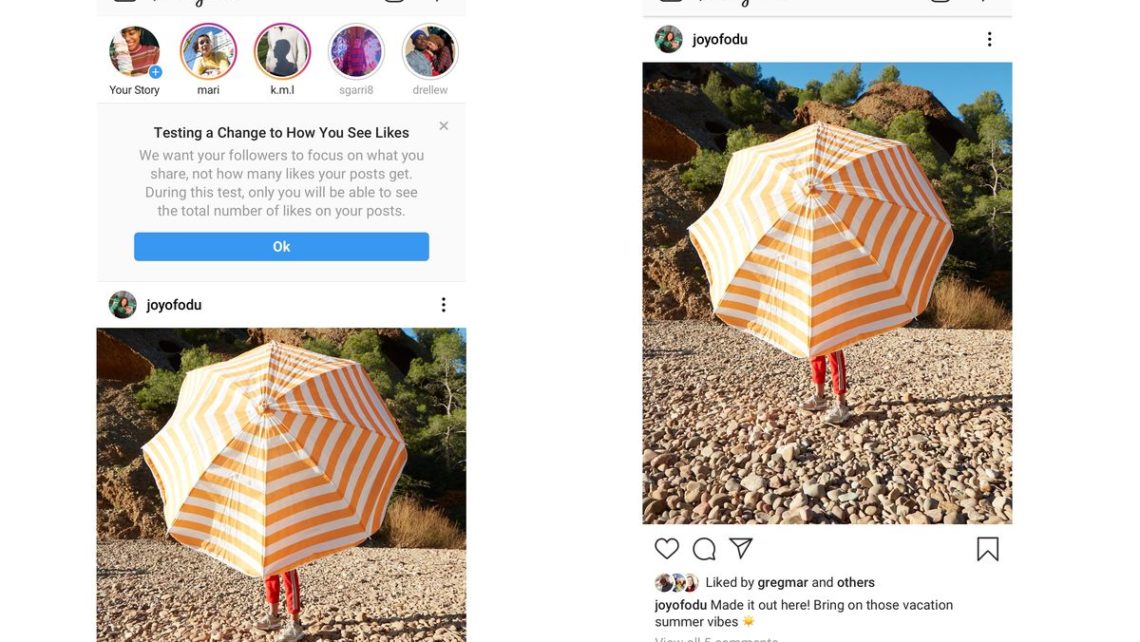How could hidden likes effect Influencer marketing?
Instagram has never been afraid of change, updating the features and interface with often little or no warning. However, the most recent development; hiding likes, has the potential to have huge impact on the influencer marketing industry. Still in the early stages, we know very little. We have gathered what information is available and shared our thoughts on the potential effect on the industry.
It was initially reported in April that Instagram were looking to test this new feature in Canada with a mind to roll it out to additional countries should it result in improvements in some of Instagram’s key metrics such as positive engagement and user interaction [1]. We can only assume these metrics were met as the feature has now been rolled out to 6 more countries.
The total list of countries included is:
- Canada
- Australia
- New Zealand
- Italy
- Ireland
- Japan
- Brazil
This might seem like a relatively minor change from the outside world, though there are many potential implications to a move like this. We have summerised some of the major changes that we predict might occur as a result of hiding likes on Instagram.
Quality Content Wins
With the removal of ‘likes’ we expect to see a move toward improved content. This statement may initially seem like a paradox as ‘likes’ were intended to reward the best content. However, the reality is that likes reward a very particular type of post [2]. As a result, influencers may have felt pressured to conform to the formula that achieves the most likes
In our experience, anytime we trust our community to create content in their style they produce the best content. We predict that this move from Instagram will free influencers to create posts they love which will result in better content all round!
Recruitment will be more difficult for brands without a platform.
One of the big advantages to using a platform to assist in your influencer marketing is being able to select the right influencers for your campaign during recruitment. As many readers will know, choosing the best influencers to work with is not simply about who has the biggest audience, but whose audience is the most engaged. Engagement is calculated as the % of your following that ‘engages’ (likes and/ or comments) on your post.
In the 7 countries listed above it will now be far more difficult to select influencer who you know have strong engagement as you will simply not be able to see this.
Two possible implications here are; brands will ignore engagement metrics having to focus on the vanity reach metric, or they will need the assistance of third party influencer marketing platforms to assist in recruitment.
Remove Fraud Likes
If no one can see how many likes you have, the need to buy likes becomes removed. This is not likely to be one of the primary drivers for this feature, though it will hopefully make a significant dent into the ‘fake like’ industry.
This is one significant benefit to likes, and engagement being less at the forefront of people’s minds.
Mental Health.
A big part of the conversation around social media lately has been regarding the mental health implications. It has long been established that receiving ‘likes’ on Facebook and Instagram gives us a small hit of dopamine resulting in social media becoming addictive. These apps have become so addictive that former Vice-President of User Growth at Facebook announced he felt “tremendous guilt” regarding the way in which they created the ultimate addictive experience for users [3].
Is hiding likes one of the first steps in a direction away from this behaviour?
Of course we can’t know for sure how this move will effect
influencer marketing. If you have any questions or thoughts about how this
might effect your business please do get
in touch.
[1] https://www.forbes.com/sites/nicolemartin1/2019/04/30/instagram-may-be-getting-rid-of-likes-on-platform/#2ec5966031d1
[2] https://www.curalate.com/blog/6-image-qualities-that-drive-more-instagram-likes/
[3] http://sitn.hms.harvard.edu/flash/2018/dopamine-smartphones-battle-time/

Leave a Comment